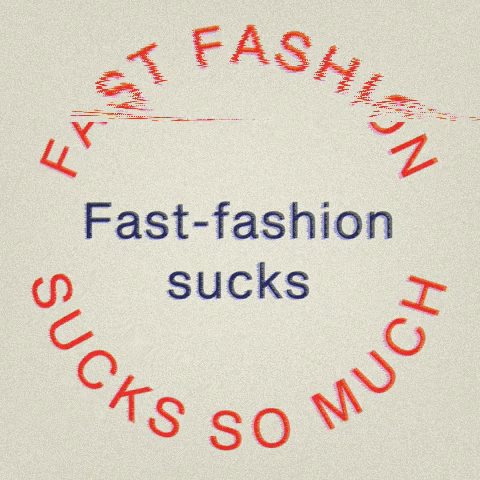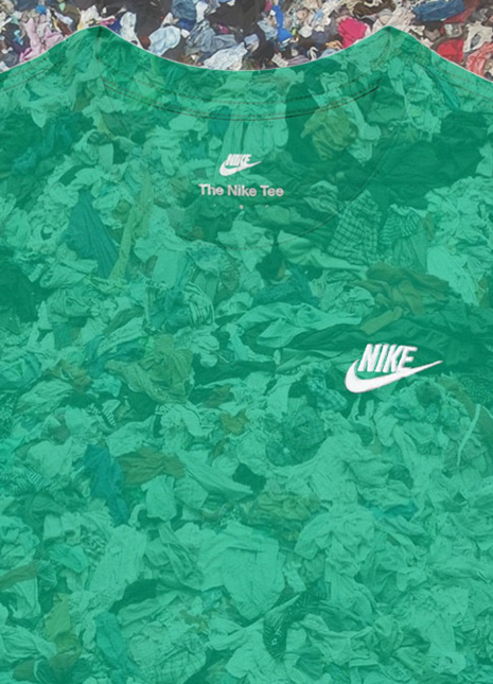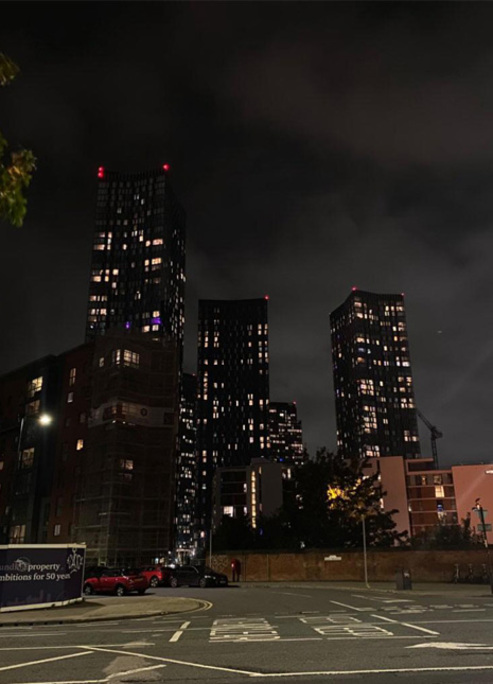
Fast Fashion: The Villain
We’ve all heard that fast fashion is bad, but most of us don’t know why.
Bit by bit, we’re waking up to the horrifying threat of the climate crisis and the true role that fast fashion brands play in this. While the global pandemic has kept us all indoors, it has made us rethink our spending habits and focus more on what we’re buying into. When it comes down to it, ignorance isn’t as blissful as it’s been made out to be.

So, let’s start with the basics. Fast fashion relates to stylish low-cost clothes that reflect the constant desire for new items in society. On entering the 21st century fast fashion was birthed, gradually growing and causing a throwaway culture. There are many issues caused by this, and they all place the well-being of our planet in the firing line.
Fast fashion is quite literally in its name, it works at a very quick pace to meet the high demand of buys. To ensure companies keep up with new trends and seasons, brands create far more clothing than necessary, and of course, not everything from the ginormous range offered is purchased. An estimate of 200,000 tons of garment waste ends up in landfill each year from the UK. Sustainable brands will recycle these garments, utilizing fabrics to create new designs and by buying into this, you are reducing CO2 being released into the environment.
We get it: recycling old garments is time consuming and irritating, but H&M have made it easy for us. Constantly striving for transparency with the consumer, the retailer have now gone the extra mile launching repair ateliers at flagship stores. Stockholm, Paris, Vienna and London are all places you can restore your old garments, rather than buy new ones. Who knew to mend would be so on trend?
To cater to the ever-changing styles, more and more of our beautiful planet is being destroyed. Forests, lakes, fields you name it. The facts are that if cotton isn’t resourced sustainability, it shrinks water sources by irrigation and extreme stress on supplies. The Aral Sea acts as one of the largest cotton exporters in the world, and it is now a 10th of its original size. Such a decrease affects climate temperature and enhances global warming. Water is something we take for granted, but fast fashion is pushing our planet towards a global draught.
And it only gets worse… the items themselves are extremely harmful. Most often than not they’re made from types of plastics such as nylon and polyester, which are derived from oil and petroleum. Universally, we create a scary 300 million tons of plastic every year. The fabrics aren’t bio-degradable and pollute water sources, affecting ecosystems. Our poor fury friends are drowning and it’s all down to fast fashion. But fear not, we have the perfect solution: shop for eco-friendly fabrics like bamboo and organic cotton and help save the planet!
Even if you’re not a warrior for a greener planet, the alarming facts speak for themselves. Sustainable clothing is the most fashionable thing you could be wearing right now, so what’s stopping you?
Next Up, Gen Z is Bringing The 2000s Back











